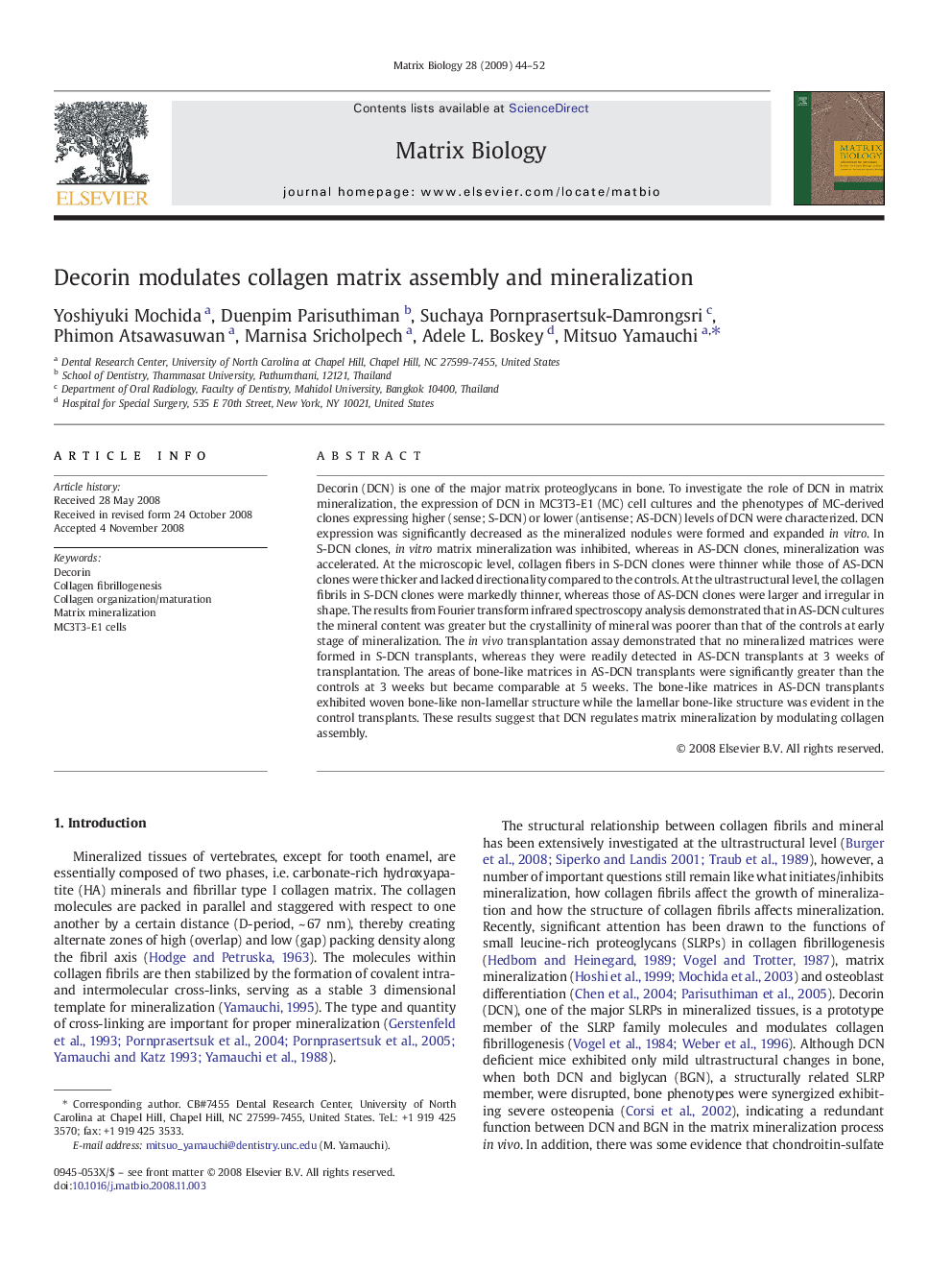| Article ID | Journal | Published Year | Pages | File Type |
|---|---|---|---|---|
| 2145025 | Matrix Biology | 2009 | 9 Pages |
Decorin (DCN) is one of the major matrix proteoglycans in bone. To investigate the role of DCN in matrix mineralization, the expression of DCN in MC3T3-E1 (MC) cell cultures and the phenotypes of MC-derived clones expressing higher (sense; S-DCN) or lower (antisense; AS-DCN) levels of DCN were characterized. DCN expression was significantly decreased as the mineralized nodules were formed and expanded in vitro. In S-DCN clones, in vitro matrix mineralization was inhibited, whereas in AS-DCN clones, mineralization was accelerated. At the microscopic level, collagen fibers in S-DCN clones were thinner while those of AS-DCN clones were thicker and lacked directionality compared to the controls. At the ultrastructural level, the collagen fibrils in S-DCN clones were markedly thinner, whereas those of AS-DCN clones were larger and irregular in shape. The results from Fourier transform infrared spectroscopy analysis demonstrated that in AS-DCN cultures the mineral content was greater but the crystallinity of mineral was poorer than that of the controls at early stage of mineralization. The in vivo transplantation assay demonstrated that no mineralized matrices were formed in S-DCN transplants, whereas they were readily detected in AS-DCN transplants at 3 weeks of transplantation. The areas of bone-like matrices in AS-DCN transplants were significantly greater than the controls at 3 weeks but became comparable at 5 weeks. The bone-like matrices in AS-DCN transplants exhibited woven bone-like non-lamellar structure while the lamellar bone-like structure was evident in the control transplants. These results suggest that DCN regulates matrix mineralization by modulating collagen assembly.
